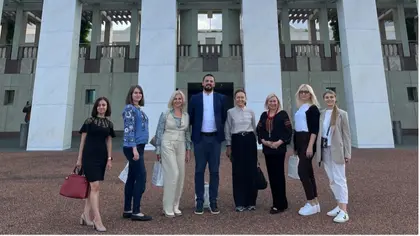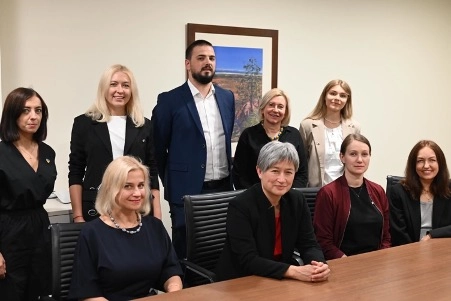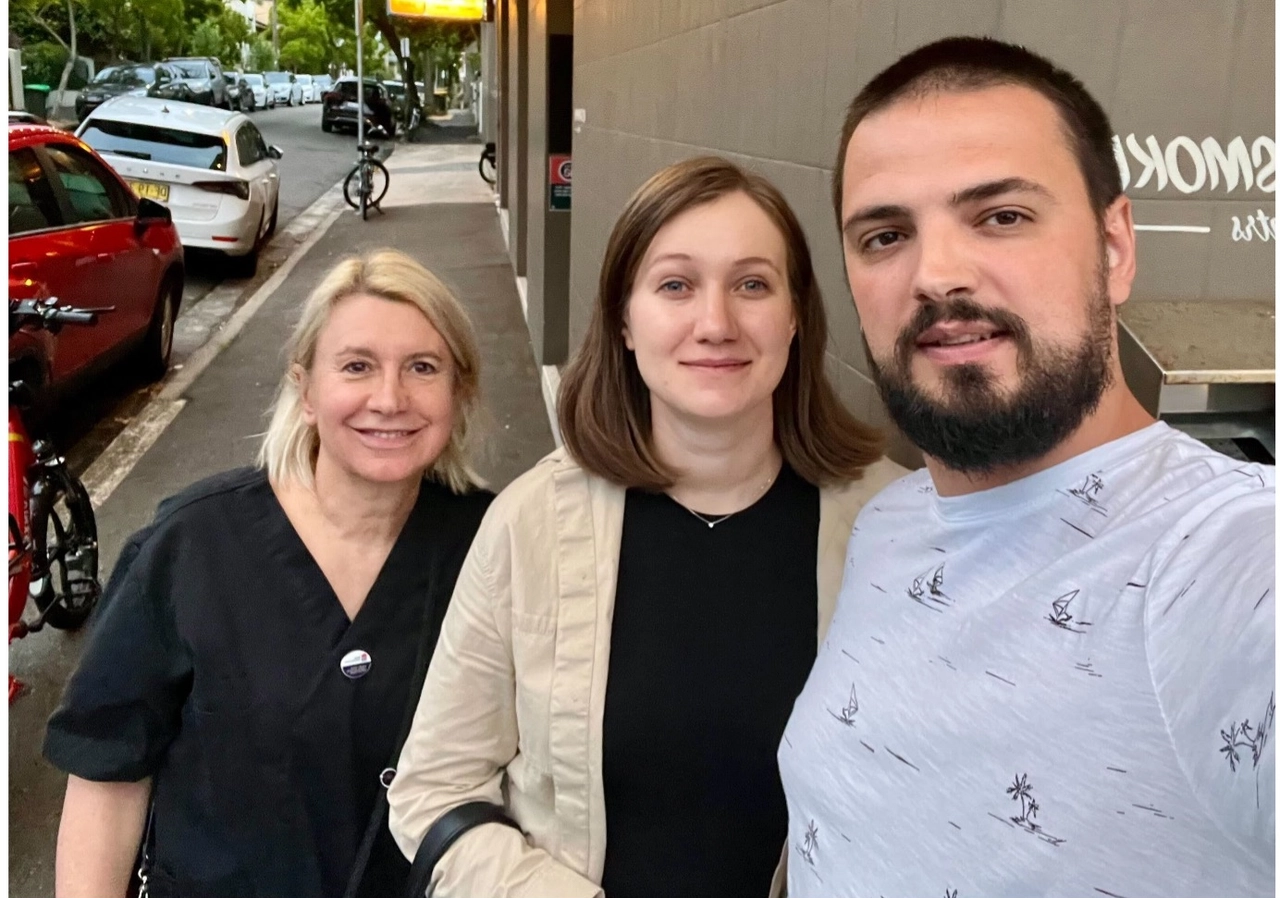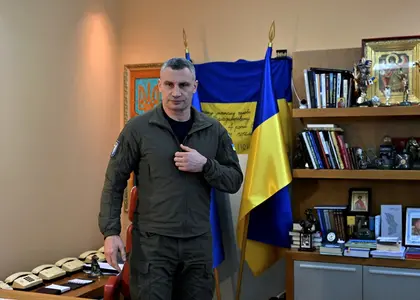“We will win the war, but we risk losing the peace if we don’t continue to prioritize the nation’s mental health,” according to Dr Dmytro Martsenkovskyi, a leading Ukrainian psychiatrist.
Dr Dmytro Martsenkovskyi and Dr Viktoriia Kolokolova are two of the three psychiatrists, two psychologists and two psychotherapists currently participating in an initiative supported by the Australian Government to provide insights, training and skills to Ukrainian mental health leaders and to empower them for further work in their war-torn country.
JOIN US ON TELEGRAM
Follow our coverage of the war on the @Kyivpost_official.
The Ukrainian healthcare providers were interviewed this week by Kyiv Post, and joined by Dr Tanya Dus, Director of Psychiatry at RPA Hospital in Sydney, and a long-term member of the local Ukrainian diaspora community.
Challenging common perceptions, the visiting program participants told Kyiv Post that mental health impacts and results among Ukrainians are largely as could be expected.
Delegation of Ukrainian mental health professionals with Australian Foreign Affairs Minister Penny Wong

Silence and Suspicion on Belarus’ Border With Ukraine
“We know that the war has impacted nearly all Ukrainians and that some 70 percent reported psychological and emotional issues,” Kokolova, a medical analyst with the Coordination Center for Mental Health under Ukraine’s Cabinet of Ministries, said.
“However, with respect to post-traumatic stress disorder (PTSD), only about 40 percent have suffered from a diagnosed mental illness during the full-scale period, and that has now reduced to around 20 percent of the population – many of whom had pre-existing vulnerabilities prior to the full-scale invasion,” Martenskovsyi added.
His colleague confirmed that “these trends are similar to what has been seen in other societies that have had to endure war, but it is vital to keep working as the war goes on and ends.”
The visiting professionals emphasized that, while results to date have been manageable through the efforts of psychological professionals in Ukraine, vigilance was nevertheless vital going forward.
“If we are to keep mentally healthy, and minimize the impact of post-traumatic stress, we need to keep mental health as the priority that it has been to date,” Martsenkovskyi, an assistant professor of psychiatry at the Bogomolets National Medical University, said.
The championing of the “Ty Yak?” [How Are You?] mental health education and support campaign from the early days of the war initiated by Olena Zelenska, Ukraine’s First Lady, was a major milestone and an example of the commitment needed going forward, according to Kyiv Post’s interlocutors.
“The First Lady really drove commitment right across all parts of Government and the broader community,” Kolokolova said.
“She was the main driver, and her personal participation was critical to mobilizing the resources the community needed, rapidly destigmatizing mental illness in Ukrainian society, and giving citizens the skills to not only spot symptoms and stressors, but also positively respond to them,” he said.
A “secret weapon” of Ukraine’s defense against Russian aggression the psychiatrists noted has been “keeping the routines of Ukrainian life going,” Kolokolova said.
“It’s interesting that some in the West and online have criticized Ukrainians for continuing to go to cafes or holding get-togethers and the like.
“It’s our routines and our normalcy that are actually giving Ukrainians psychological and emotional strength. It’s very important during wartime to have the sense of control and source of hope that social interaction gives,” said Kolokolova.
Martsenkovskyi said, “Routine is part of the path to victory. It’s key to resilience now and recovery in future. Indeed, my military friends have said they are at the front because ‘we want you to live normally’,” referring to the civilian population.
Doctors Dus, Kolokolova, and Martenskovskyi in Sydney
Through the Australian Government’s Australia Awards scheme, the multi-disciplinary training program was developed with Australian NGO STARTTS, which has specialized in war trauma treatment for 30 years; it is coordinated by Dus with the support of both Vasyl Myroshnychenko, Ukraine’s Ambassador to Australia, and Bruce Edwards, Australia’s Ambassador to Ukraine.
Dus said, “While approaches here in Australia need to be adapted for the different system in Ukraine, there is increasing recognition of the need to further develop community-based care, and also to enhance allied health care roles, such as social work and occupational therapy.
“This would enable a multidisciplinary approach to mental health care, which is so important in supporting traumatized individuals in a holistic sense,” said Dus, who is the daughter of post-World War II Ukrainian displaced persons to Australia.
The use of the Department of Foreign Affairs and Trade’s Australia Awards Fellowships scheme for Ukrainian participants is without precedent, for which the two participants told Kyiv Post they are grateful.
But at the same time, the strength-based outlook of Martsenkovskyi and Kolokolova and their colleagues is unlikely to be taught.
“Ukraine’s mental health status and indeed the response to the country’s psychological issues during the full-scale war shows Ukrainians are not victims – they are survivors. That’s not just semantics – it’s a different mindset that lends itself to resilience and recovery,” Martsenkovskyi said.
You can also highlight the text and press Ctrl + Enter












